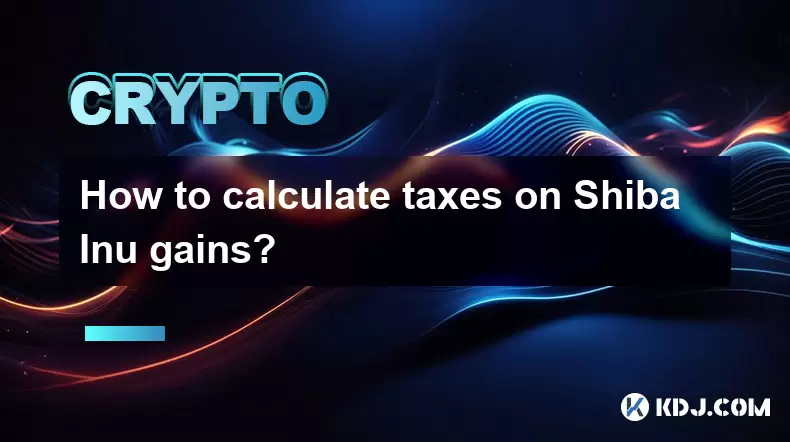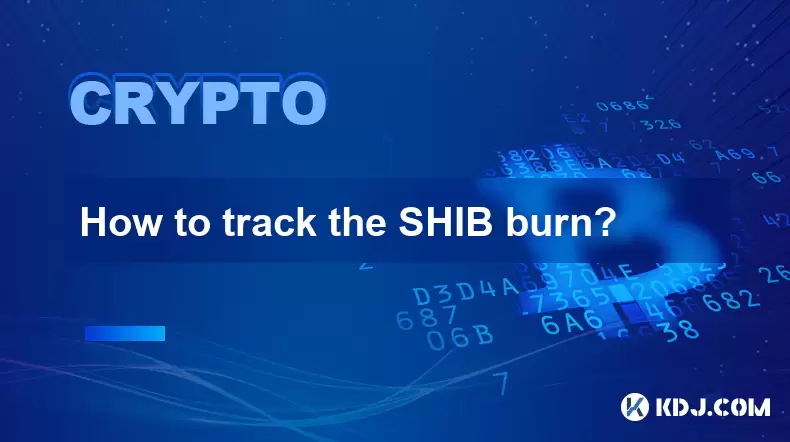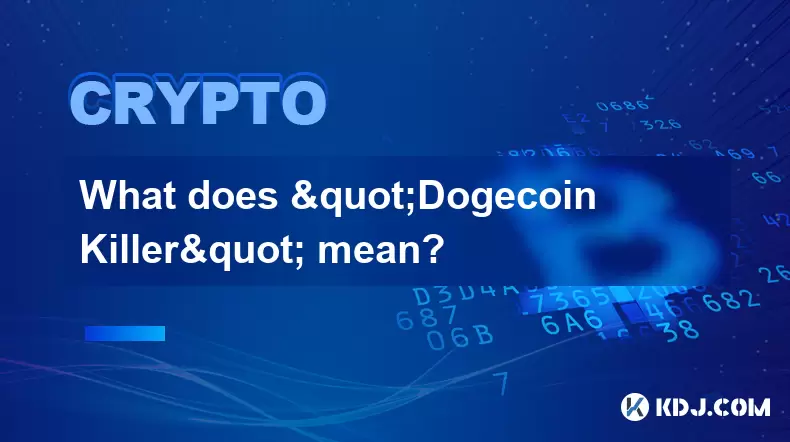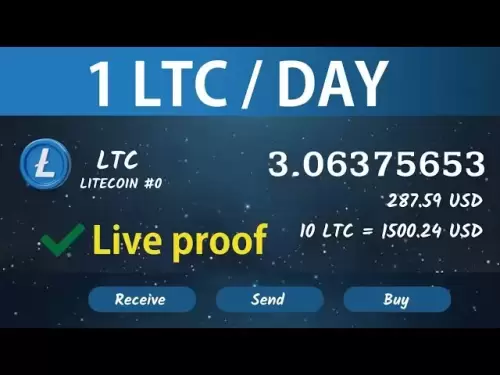-
 Bitcoin
Bitcoin $117400
-0.46% -
 Ethereum
Ethereum $3768
0.60% -
 XRP
XRP $3.551
2.09% -
 Tether USDt
Tether USDt $1.000
0.00% -
 Solana
Solana $203.2
11.30% -
 BNB
BNB $770.9
1.92% -
 USDC
USDC $0.9999
0.01% -
 Dogecoin
Dogecoin $0.2709
-0.02% -
 Cardano
Cardano $0.9024
4.49% -
 TRON
TRON $0.3139
0.60% -
 Hyperliquid
Hyperliquid $45.60
-1.41% -
 Stellar
Stellar $0.4730
-1.34% -
 Sui
Sui $4.025
2.15% -
 Chainlink
Chainlink $19.79
2.19% -
 Hedera
Hedera $0.2724
-2.39% -
 Avalanche
Avalanche $25.93
3.05% -
 Bitcoin Cash
Bitcoin Cash $524.0
-1.83% -
 Shiba Inu
Shiba Inu $0.00001558
0.50% -
 Litecoin
Litecoin $116.7
-0.30% -
 UNUS SED LEO
UNUS SED LEO $8.996
0.00% -
 Toncoin
Toncoin $3.334
1.83% -
 Polkadot
Polkadot $4.506
0.34% -
 Uniswap
Uniswap $10.99
4.83% -
 Ethena USDe
Ethena USDe $1.001
0.03% -
 Pepe
Pepe $0.00001461
3.17% -
 Monero
Monero $320.3
-1.01% -
 Bitget Token
Bitget Token $4.935
0.36% -
 Dai
Dai $0.9998
0.00% -
 Aave
Aave $322.4
-1.25% -
 Bittensor
Bittensor $455.6
9.33%
How to calculate taxes on Shiba Inu gains?
Gains from Shiba Inu (SHIB) transactions are taxable in many jurisdictions, treated as property by authorities like the IRS, triggering capital gains or income tax upon sale, trade, or use.
Jul 22, 2025 at 01:36 pm

Understanding the Tax Implications of Shiba Inu (SHIB)
Shiba Inu (SHIB) is a meme cryptocurrency that has gained significant traction among retail investors. Like all cryptocurrencies, gains from SHIB transactions are subject to taxation in many jurisdictions. Tax authorities such as the IRS in the United States classify cryptocurrencies as property, which means that capital gains and losses apply when you sell, trade, or use SHIB.
Before calculating taxes, it's essential to understand how SHIB is treated in your country. Some governments impose income tax on crypto earnings, while others apply capital gains tax only when SHIB is sold or exchanged. This distinction is crucial because it affects the rate at which your gains are taxed.
Tracking SHIB Transactions for Tax Purposes
To calculate taxes accurately, you must maintain a detailed record of every SHIB transaction. This includes purchases, sales, trades, and any airdrops or staking rewards you may have received. Many crypto investors use tools like spreadsheets or specialized software such as CoinTracking, Koinly, or CryptoTax to organize this data.
Each transaction should include the following details:
- Date and time of transaction
- Type of transaction (buy, sell, trade, etc.)
- Amount of SHIB involved
- Value of SHIB in fiat currency (e.g., USD) at the time of the transaction
- Wallet addresses or exchange accounts involved
Failure to track this information can lead to inaccurate tax reporting and potential penalties from tax authorities.
Calculating Capital Gains on SHIB
When you sell or trade SHIB for another cryptocurrency or fiat currency, you realize a capital gain or loss. To calculate your gain, subtract the cost basis (what you originally paid for the SHIB) from the proceeds (what you received in return).
For example:
- You bought 100,000 SHIB for $100.
- Later, you sold those 100,000 SHIB for $500.
- Your capital gain would be $400 ($500 - $100).
The holding period also matters for tax purposes. In some countries, assets held for more than a year may qualify for lower long-term capital gains rates.
If you trade SHIB for another cryptocurrency, such as ETH or BTC, this is also considered a taxable event. You must determine the fair market value of SHIB at the time of the trade to calculate your gain or loss.
Reporting Airdrops and Staking Rewards
If you’ve received SHIB through airdrops or staking, these are generally considered taxable income. The value of the SHIB received at the time it was credited to your wallet is your taxable amount.
For instance:
- You received 50,000 SHIB as an airdrop.
- At the time of receipt, SHIB was valued at $0.0002 per token.
- The total taxable income would be $10 (50,000 × $0.0002).
When you later sell or trade these SHIB tokens, you will again calculate capital gains or losses based on their value at the time of receipt.
It’s important to note that staking rewards may be taxed differently depending on your jurisdiction. Some tax authorities treat staking rewards as income upon receipt, while others may defer taxation until the tokens are sold.
Using Tax Software to Automate Calculations
Manually tracking and calculating taxes on SHIB transactions can be time-consuming and prone to errors. Crypto tax software can automatically import your transaction history from exchanges and wallets, calculate your gains and losses, and generate tax reports.
These tools often support major exchanges like Binance, Coinbase, and Kraken. They can also handle complex scenarios such as DeFi transactions, NFTs, and multi-currency trades.
To use tax software effectively:
- Connect your exchange accounts via API or upload CSV files
- Ensure all SHIB transactions are included
- Review the cost basis method used (e.g., FIFO, LIFO, or specific ID)
- Export the final tax report for submission to your local tax authority
Some platforms even offer audit support and detailed transaction breakdowns, which can be invaluable in the event of an inquiry from tax authorities.
Frequently Asked Questions (FAQs)
Q: Are small SHIB transactions below a certain threshold tax-exempt?
A: Tax exemptions for small crypto transactions vary by country. Some jurisdictions set a minimum threshold for taxable disposals, while others tax every transaction regardless of size. You should consult your local tax guidelines or a qualified accountant for accurate information.
Q: How do I determine the fair market value of SHIB for tax purposes?
A: The fair market value is typically based on the price of SHIB on a reputable exchange at the time of the transaction. You can use tools like CoinGecko, CoinMarketCap, or exchange-specific data to determine the USD or local currency value.
Q: What happens if I lose access to my SHIB wallet? Can I claim a loss on my taxes?
A: In some jurisdictions, lost or inaccessible crypto may qualify as a capital loss. However, documentation and proof of loss are usually required, and the rules vary significantly by country. It’s best to consult a tax professional before claiming such a loss.
Q: Do I have to pay taxes if I convert SHIB to another token without cashing out?
A: Yes, in most cases, converting SHIB to another cryptocurrency is considered a taxable event. You must calculate the gain or loss based on the value of SHIB at the time of the trade, even if you don’t convert to fiat currency.
Disclaimer:info@kdj.com
The information provided is not trading advice. kdj.com does not assume any responsibility for any investments made based on the information provided in this article. Cryptocurrencies are highly volatile and it is highly recommended that you invest with caution after thorough research!
If you believe that the content used on this website infringes your copyright, please contact us immediately (info@kdj.com) and we will delete it promptly.
- XRP, Bitcoin, Ripplecoin: Navigating the Crypto Landscape in 2025
- 2025-07-22 20:30:13
- Cardano Ecosystem Watch: Can PayFi Token Remittix Trigger an ADA Overtake?
- 2025-07-22 20:50:13
- JasmyCoin Price Forecast: Chart Analysis Points to Potential Surge
- 2025-07-22 20:55:13
- Trump, Bitcoin, and Altcoins: A New York Minute on Crypto's Political Play
- 2025-07-22 21:00:13
- Shiba Inu, XRP, and Little Pepe: Navigating the Meme Coin Mania in NYC
- 2025-07-22 21:30:13
- Bitcoin's Role in IntelBroker's Takedown: A New Era of Crypto Crime Enforcement
- 2025-07-22 21:10:15
Related knowledge

How to buy SHIB in New York?
Jul 18,2025 at 05:42pm
What is SHIB and Why is it Popular?SHIB, or Shiba Inu, is a decentralized cryptocurrency that has gained popularity due to its meme-inspired branding ...

What are the tokenomics of SHIB?
Jul 20,2025 at 06:21pm
Overview of SHIB TokenSHIB, short for Shiba Inu, is an Ethereum-based cryptocurrency that launched in August 2020. It was created as a decentralized c...

How to track the SHIB burn?
Jul 18,2025 at 10:35pm
Understanding the SHIB Burn MechanismThe SHIB burn refers to the process of permanently removing Shiba Inu (SHIB) tokens from circulation. This is typ...

What will happen if SHIB reaches 1 cent?
Jul 22,2025 at 02:00pm
Understanding the Value of SHIBSHIB, or Shiba Inu, is a decentralized meme token that gained significant attention due to its association with Dogecoi...

Shiba Inu coin explained for beginners
Jul 22,2025 at 05:49am
What Is Shiba Inu Coin?Shiba Inu (SHIB) is a decentralized cryptocurrency that was created in 2020 by an anonymous individual or group known as Ryoshi...

What does "Dogecoin Killer" mean?
Jul 22,2025 at 06:56am
What is the Origin of the Term 'Dogecoin Killer'?The term 'Dogecoin Killer' first emerged in the cryptocurrency community as a label for any altcoin t...

How to buy SHIB in New York?
Jul 18,2025 at 05:42pm
What is SHIB and Why is it Popular?SHIB, or Shiba Inu, is a decentralized cryptocurrency that has gained popularity due to its meme-inspired branding ...

What are the tokenomics of SHIB?
Jul 20,2025 at 06:21pm
Overview of SHIB TokenSHIB, short for Shiba Inu, is an Ethereum-based cryptocurrency that launched in August 2020. It was created as a decentralized c...

How to track the SHIB burn?
Jul 18,2025 at 10:35pm
Understanding the SHIB Burn MechanismThe SHIB burn refers to the process of permanently removing Shiba Inu (SHIB) tokens from circulation. This is typ...

What will happen if SHIB reaches 1 cent?
Jul 22,2025 at 02:00pm
Understanding the Value of SHIBSHIB, or Shiba Inu, is a decentralized meme token that gained significant attention due to its association with Dogecoi...

Shiba Inu coin explained for beginners
Jul 22,2025 at 05:49am
What Is Shiba Inu Coin?Shiba Inu (SHIB) is a decentralized cryptocurrency that was created in 2020 by an anonymous individual or group known as Ryoshi...

What does "Dogecoin Killer" mean?
Jul 22,2025 at 06:56am
What is the Origin of the Term 'Dogecoin Killer'?The term 'Dogecoin Killer' first emerged in the cryptocurrency community as a label for any altcoin t...
See all articles

























































































